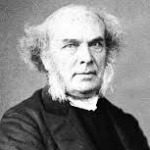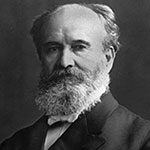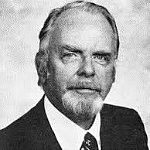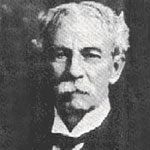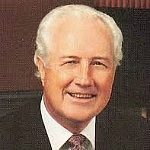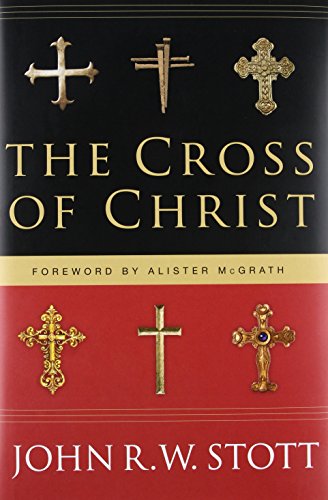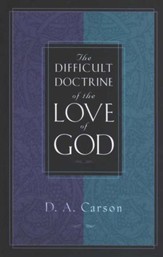Quotes about God-Love
God loves each one of us as if there were only one of us to love.
Jesus’ coming is the final and unanswerable proof that God cares.
Is it a small thing in your eyes to be loved by God – to be the son, the spouse, the love, the delight of the King of glory? Christian, believe this, and think about it: you will be eternally embraced in the arms of the love which was from everlasting, and will extend to everlasting – of the love which brought the Son of God’s love from heaven to earth, from earth to the cross, from the cross to the grave, from the grave to glory – that love which was weary, hungry, tempted, scorned, scourged, buffeted, spat upon, crucified, pierced – which fasted, prayed, taught, healed, wept, sweated, bled, died. That love will eternally embrace you.
The love of God to us, and our love to Him, work together for producing holiness. Terror accomplishes no real obedience. Suspense brings forth no fruit unto holiness. No gloomy uncertainty as to God’s favor can subdue one lust, or correct our crookedness of will. But the free pardon of the cross uproots sin, and withers all its branches. Only the certainty of love, forgiving love, can do this.
If we want proof of God’s love for us, then we must look first at the Cross where God offered up His Son as a sacrifice for our sins. Calvary is the one objective, absolute, irrefutable proof of God’s love for us.
Trusting God, 1988, p. 138. Used by permission of NavPress – www.navpress.com, All rights reserved. Get this book!
The great God not only loves His saints, but He loves to love them.
Trusting God, 1988, p. 142. Used by permission of NavPress – www.navpress.com, All rights reserved. Get this book!
We mistakenly look for tokens of God’s love in happiness. We should instead look for them in His faithful and persistent work to conform us to Christ.
Trusting God, 1988, p. 150. Used by permission of NavPress – www.navpress.com, All rights reserved. Get this book!
God’s unfailing love for us is an objective fact affirmed over and over in the Scriptures. It is true whether we believe it or not. Our doubts do not destroy God’s love, nor does our faith create it. It originates in the very nature of God, who is love, and it flows to us through our union with His beloved Son.
Trusting God, 1988, p. 155. Used by permission of NavPress – www.navpress.com, All rights reserved. Get this book!
The extent of God’s love at Calvary is seen in both the infinite cost to Him of giving His one and only Son, and in the wretched and miserable condition of those He loved. God could not remove our sins without an infinite cost to both Himself and His Son. And because of their great love for us, both were willing—yes more than merely willing—to pay that great cost, the Father in giving His one and only Son, and the Son in laying down His life for us. One of the essential characteristics of love is the element of self-sacrifice, and this was demonstrated for us to its ultimate in God’s love at Calvary.
Trusting God, 1988, p. 138. Used by permission of NavPress – www.navpress.com, All rights reserved. Get this book!
The only ground of God’s love is His love. The ground of God’s love is only and wholly in Himself. There is neither portion nor proportion in us to draw His love. There is no love nor loveliness in us that should cause a bean of His love to shine upon us.
Both God’s love and God’s wrath are ratcheted up in the move from the old covenant to the new, from the Old Testament to the New. These themes barrel along through redemptive history, unresolved, until they come to a resounding climax – in the cross.
The Difficult Doctrine of the Love of God, Crossway, 2000, p. 70. Get this book!
Wrath, unlike love, is not one of the intrinsic perfections of God. Rather, it is a function of God’s holiness against sin. Where there is no sin, there is no wrath-but there will always be love in God. Where God in His holiness confronts His image-bearers in their rebellion, there must be wrath, or God is not the jealous God He claims to be, and His holiness is impugned. The price of diluting God’s wrath is diminishing God’s holiness.
The Difficult Doctrine of the Love of God, Crossway, 2000, p. 67. Get this book!
The cliché, God hates the sin but love the sinner, is false on the face of it and should be abandoned. Fourteen times in the first fifty Psalms alone, we are told that God hates the sinner, His wrath is on the liar, and so forth. In the Bible, the wrath of God rests both on the sin (Romans 1:18ff) and on the sinner (John 3:36).
The Difficult Doctrine of the Love of God, Crossway, 2000, p. 70. Get this book!
John’s point in 1 John 4, “God is love,” is that those who really do know God come to love that way too. Doubtless we do not do it very well, but aren’t Christians supposed to love the unlovable-even our enemies? Because the Gospel has transformed us, our love is to be self-originating, not elicited by the loveliness of the loved. For that is the way it is with God. He loves because love is one of His perfections, in perfect harmony with all His other perfections.
The Difficult Doctrine of the Love of God, Crossway, 2000, p. 63. Get this book!
If the Bible talked only about the love of God, carefully delineating different ways of speaking of that love, but never spoke of God’s hatred or His wrath, we would be dealing with quite a different God.
Love and the Intoxication of the Diligent Routine by D.A. Carson taken from Love in the Hard Places by D.A. Carson, 2002, Crossway Books, a division of Good News Publishers, Wheaton Illinois 60187, www.crosswaybooks.org. Page 182.
The perfection of God’s love, in perfect harmony with all of God’s other perfections, is inevitably displayed in different ways in the varied relationships He maintains. Similarly, mature Christian love should be nurtured as a reflection of the very being of God, in harmony with those other divine perfections we must emulate…and this love will be displayed in different ways in the very relationships we maintain.
Love and the Intoxication of the Diligent Routine by D.A. Carson taken from Love in the Hard Places by D.A. Carson, 2002, Crossway Books, a division of Good News Publishers, Wheaton Illinois 60187, www.crosswaybooks.org. Page 193.
To love this God means, among many other things, that we will be hungry to get to know Him better; conversely, in learning His words and ways, His attributes and His glory, what He loves and what He hates, we will find that our understanding of what it means to love God, what it means to love enemies, what it means to love brothers and sisters in Christ, will all be progressively modified and enriched. Precisely because, as created, dependent, and redeemed creatures, we are called to love our Creator, our Sovereign, our Redeemer with heart and soul and strength and mind, we will be firmly led to think robustly about what He is like, how He views evil, what rights and responsibilities He gives to the state in a fallen world, His role both in making peace and in judgment, and, above all, His commitment to His own glory as God.
Love and the Intoxication of the Diligent Routine by D.A. Carson taken from Love in the Hard Places by D.A. Carson, 2002, Crossway Books, a division of Good News Publishers, Wheaton Illinois 60187, www.crosswaybooks.org. Page 187.
In such trials God still truly blesses our faithfulness to Him, but these blessings can as well involve the mercy of removing us from the grasp of this world’s pleasures as rewarding us with worldly delights (Heb. 12:11; James 1:2-4). Whether God chooses the ordinary path of rewarding our goodness with observable blessing, or the extraordinary path of blessing our obedience with trials that will strengthen our character and stretch our faith, His love is never lacking (Heb. 12: 6-11).
Holiness by Grace, Crossway, p. 25. Get this book!
While God is not pleased with my sin and may discipline me in order to turn me from destructive paths and practices, His love for me does not diminish in any degree. He gave himself for my sins in their entirety, so that I might have His love in its entirety… Accepting this reality of God’s unchanging regard is necessary for us to make progress in the Christian life.
Holiness by Grace, Crossway, p. 54. Get this book!
We must understand how to separate our “who” from our “do.” What we do does not gain us God’s affection. Who we are by virtue of His unconditional love constrains us through the power of our gratitude to obey Him. If we ever invert these relationships (as is the instinctive, natural impulse of all humanity) by assuming that who we are before God is a consequence of what we do for Him, then we make God’s love conditional and our security questionable.
Constrained by the Law of Freedom by Bryan Chapell taken from Holiness by Grace by Bryan Chapell, copyright 2001, Crossway Books, a division of Good News Publishers, Wheaton Illinois 60187, www.crosswaybooks.org. Page 128.
If God is in fact our Enemy with only destructive intentions toward us, why do we experience any good at all? It isn’t surprising that life is painful. What’s surprising is that life is joyful. What do our simple, daily joys mean? Is God pretending to be our Friend, is He setting us up for the ultimate nasty surprise? Or is God sending us signals every day that His heart is loving and kind, so kind that we can go back to Him in repentance and find His arms open to us?
It was love that [God] would restore man after the fall; there was no more necessity of doing this than of creating the world, as it added nothing to the happiness of God, so the want of it had detracted nothing from it.
It is natural…for us to trust in ourselves. It is so natural, and so confirmed by the habits of a lifetime, that no ordinary difficulties or perplexities avail to break us of it. It takes all God can do to root up our self-confidence. He must reduce us to despair; He must bring us to such an extremity that the one voice we have in our hearts, the one voice that cries to us wherever we look round for help, is death, death, death. It is out of this despair that the superhuman hope is born. It is out of this abject helplessness that the soul learns to look up with new trust to God… How do most of us attain to any faith in Providence? Is it not by proving, through numberless experiments, that it is not in man that walketh to direct his steps? Is it not by coming, again and again, to the limit of our resources, and being compelled to feel that unless there is a wisdom and a love at work on our behalf, immeasurably wiser and more benign than our own, life is a moral chaos?… Only desperation opens our eyes to God’s love.
Resolved, to examine carefully, and constantly, what that one thing in me is, which causes me in the least to doubt of the love of God; and to direct all my forces against it.
There, in heaven, this infinite fountain of love — this eternal Three in One — is set open without any obstacle to hinder access to it, as it flows forever. There this glorious God is manifested and shines forth in full glory, in beams of love. And there this glorious fountain forever flows forth in streams, yea, in rivers of love and delight, and these rivers swell, as it were, to an ocean of love, in which the souls of the ransomed may bathe with the sweetest enjoyment, and their hearts, as it were, be deluged with love!
He does not love us if we love Him. He loves us with an unconditional love; therefore, we should love Him. The message of the covenant is one of God’s totally free grace to His people. Of course, it calls for a response of total commitment. But notice the order: God’s covenant love is not the result of our commitment; it is the cause of it. The pattern is, “I will, therefore you should;” not “I will, but only if you will first.”
How you view God determines the quality and style of your Christian experience. Many Christians spend much of their lives paralyzed because, although they have trusted Christ as Saviour, they have never really seen what His sacrifice teaches us about the character of God. He gave His Son; He sent His Son; He “handed over” His Son because He loves us.
If we have deep-seated fears that God does not really love us (as many Christians have), we can only go so far in growing nearer to God. There will come a point at which we will fear to trust Him any further because we cannot be sure of His love. When we look at ourselves, or our own faith, or our circumstances we will never be free from those lurking fears. Satan will see to that. But when we lift up our eyes and look on the cross we find the final persuasion that God is gracious towards us. How can He be against us when all His wrath against us fell upon Christ? How can He fail to care for us when He gave the only Son He had for our sake? How can we doubt Him when He has given us evidence of His love sufficient to banish all doubts?
God’s love is the most awesome thing about Him. It is not His justice, nor His majesty, nor even His blazing holiness, but the fact that He has made and keeps a covenant of personal commitment and love to His people.
He spared not his own Son, but delivered him up for us all; how shall He not with him freely give us all things” (Romans 8:32)? How is it imaginable that God should withhold, after this, spirituals or temporals, from His people? How shall He not call them effectually, justify them freely, sanctify them thoroughly, and glorify them eternally? How shall He not clothe them, feed them, protect and deliver them? Surely if He would not spare this own Son one stroke, one tear, one groan, one sigh, one circumstance of misery, it can never be imagined that ever He should, after this, deny or withhold from His people, for whose sakes all this was suffered, any mercies, any comforts, any privilege, spiritual or temporal, which is good for them.
God really loves us and wants us to turn away from our sins. If He passed final judgment now, we would have no such opportunity; that would be the end of time for us. He has sufficient provocation to do so; that we recognize. We have sinned enough to deserve His infinite wrath at any moment, but we do not receive it. We have an opportunity, therefore, to turn away from our sin and to turn to God. Instead of continuing to offend Him, we can plead for forgiveness and seek to please Him. While there is yet life, that is possible.
God’s love to His elect is not of yesterday; it does not begin with their love to Him, we love Him, because He first loved us. It was bore in His heart toward them long before they were delivered from the power of darkness, and translated into the kingdom of His dear Son. It does not commence in time, but bears date from eternity, and is the ground and foundation of the elect’s being called in time out of darkness into marvelous light: I have loved thee, says the Lord to the church, with an everlasting love.
My brethren, when God first began to love you, He gave you all that He ever meant to give you in the lump, and eternity of time is that in which He is retailing of it out.
God did not demand that we first demonstrate our allegiance to Him before Christ would agree to die in our place. To demand that we somehow show ourselves deserving of forgiveness in order to regain our status as His children would have been futile. What can ungodly, rebellious sinners offer God that would move the holy Creator of the universe to sacrifice His only Son on their behalf? So God acted first, motivated solely by his own sovereign love, to grant mercy to His people as the ultimate expression of His grace (Ex. 33:19; Isa. 63:7; Rom. 9:15-18; Eph. 2:4; Titus 3:5; 1 Pet. 1:3). Christ died for us because the Father and the Son loved the unlovable.
The Cross is the ultimate evidence that there is no length the love of God will refuse to go in effecting reconciliation.
Here we commemorate the greatest and deepest demonstration of true love the world has ever known. For God looked down upon sorrowing, struggling, sinning humanity and was moved with compassion for the contrary, sheep-like creatures He had made. In spite of the tremendous personal cost it would entail to Himself to deliver them from their dilemma He chose deliberately to descend and live amongst them that He might deliver them. This meant laying aside His splendor, His position, His prerogatives as the perfect and faultless One. He knew He would be exposed to terrible privation, to ridicule, to false accusations, to rumor, gossip and malicious charges that branded Him as a glutton, drunkard, friend of sinners and even an imposter. It entailed losing His reputation. It would involve physical suffering, mental anguish and spiritual agony. In short, His coming to earth as the Christ, as Jesus of Nazareth, was a straightforward case of utter self-sacrifice that culminated in the cross of Calvary. The laid-down life, the poured-out blood were the supreme symbols of total selflessness. This was love. This was God. This was divinity in action, delivering men from their own utter selfishness, their own stupidity, their own suicidal instincts as lost sheep unable to help themselves.
A Shepherd Looks at Psalm 23, Permission by Zondervan, www.zondervan.com, 1970, p. 107-108. Get this book!
Christ’s atoning work does not change God’s wrath to love, for God’s love is itself the source of the atonement.
The pure, mere love of God is that alone from which sinners are justly to expect that no sin will pass unpunished, but that His love will visit them with every calamity and distress that can help to break and purify the bestial heart of man and awaken in him true repentance and conversion to God. It is love alone in the holy Deity that will allow no peace to the wicked, nor ever cease its judgments till every sinner is forced to confess that it is good for him that he has been in trouble, and thankfully own that not the wrath but the love of God has plucked out that right eye, cut off that right band, which he ought to have done but would not do for himself and his own salvation.
As the Old Testament draws to a close, the temple stands empty, the prophets fall silent, and the throne is vacant. As the New Testament opens, almost all the tokens of God’s love are gone. Suddenly, into this seeming picture of love’s labor lost, comes the greatest demonstration of love the world has ever seen. God sends Jesus, the Son He has loved from eternity past.
The Story of Love by Michael Lawrence taken from Biblical Theology by Michael Lawrence, copyright 2010, Crossway Books, a division of Good News Publishers, Wheaton Illinois 60187, www.crosswaybooks.org. Page 143.|The Story of Love by Michael Lawrence taken from Biblical Theology by Michael Lawrence, copyright 2010, Crossway Books, a division of Good News Publishers, Wheaton Illinois 60187, www.crosswaybooks.org. Page 143.
There was never a time when God was not expressing love toward another and receiving love from another. The Father loves the Son, and the Son loves the Father. Love is bound up in the very nature of the Trinity. God cannot be God without love, because God is love.
The Story of Love by Michael Lawrence taken from Biblical Theology by Michael Lawrence, copyright 2010, Crossway Books, a division of Good News Publishers, Wheaton Illinois 60187, www.crosswaybooks.org. Page 147.
God is wrathful toward sin, but Scripture never says God is wrath, because His wrath has reference to something outside of Him – our sin. There was a time in eternity past when God’s wrath had no expression. But there has never been a time when God was not love.
The Story of Love by Michael Lawrence taken from Biblical Theology by Michael Lawrence, copyright 2010, Crossway Books, a division of Good News Publishers, Wheaton Illinois 60187, www.crosswaybooks.org. Page 147.
God’s saving electing love is not only not merited, we’ve earned just the opposite – God’s wrath.
The Story of Love by Michael Lawrence taken from Biblical Theology by Michael Lawrence, copyright 2010, Crossway Books, a division of Good News Publishers, Wheaton Illinois 60187, www.crosswaybooks.org. Page 149.
God’s love in Christ is wider than the breach your sin has made with God; it is long enough to reach back into your past and forward into an eternal future; it is high enough to bring you to God; and it is so deep, it will never run dry (see Eph. 3:18). In Christ, God loves sinners.
The Story of Love by Michael Lawrence taken from Biblical Theology by Michael Lawrence, copyright 2010, Crossway Books, a division of Good News Publishers, Wheaton Illinois 60187, www.crosswaybooks.org. Page 149-150.
The perfection of God’s love for us isn’t measured by how well He’s managing our agenda for life. No, the perfection of God’s love for us is seen in the goal He’s set for our life, and that goal is nothing less than likeness to the Son He loves.
The Story of Love by Michael Lawrence taken from Biblical Theology by Michael Lawrence, copyright 2010, Crossway Books, a division of Good News Publishers, Wheaton Illinois 60187, www.crosswaybooks.org. Page 151.
If the story of the fall reveals our own sin and guilt, it surely also reveals the amazing depths of God’s love and mercy. It was the Son of God who placed a sword at the entrance to the Garden of Eden. He did it not just to keep Adam out. He did it so that, at just the right time, he could walk through in our place, to satisfy God’s just wrath and make a way for us to enter back in, through the gate, to eat from the Tree of Life and live forever in the glorious presence of God.
The Story of the Fall by Michael Lawrence taken from Biblical Theology by Michael Lawrence, copyright 2010, Crossway Books, a division of Good News Publishers, Wheaton Illinois 60187, www.crosswaybooks.org. Page 140.
He loved us not because we are lovable, but because He is love.
God claims all, because He is love and must bless. He cannot bless us unless He has us. When we try to keep within us an area that is our own, we try to keep an area of death. Therefore, in love, He claims all. There’s no bargaining with Him.
The words “God is love” have no real meaning unless God contains at least two Persons. Love is something that one person has for another person. If God was a single person then before the world was made, He was not love.
In some way, it is natural for us to wish that God had designed for us a less glorious and less arduous destiny; but then we are wishing not for more love but for less.
The kind of love that animates the inclusivist god is more akin to sentimentalism than God’s holy affection. If love means God abandons all of His other attributes, then love itself is deified. The love of God does not dictate that He abandon His justice or holiness. In fact, the glory of the gospel is that God is both just and justifier of the ungodly. God does not allow unregenerate sinners to do as they will, worship what they wish, live as they please, and still go free. In the divine scheme of things, sin demands punishment. The rebellion of self-worship requires wrath. Yet, the God of wrath is no less than the God of mercy. He is the same God. Were God never to have offered salvation to any sinner, His love would still survive unblemished. The reality and riches of God’s love is not measured in the number of person’s saved, but in the magnificence of the attribute itself.
God’s stern hatred of evil is a necessary part of His love for man.
To deny the special love of God, and to believe that Christ loves all men equally, is to suppose that Christ has done no more for those the Father has given to Him than for mankind at large. But if Christians are no more loved than those who will finally be lost, the decisive factor in salvation becomes, not God’s grace and love, but something in them, and their perseverance becomes dependent upon themselves.
The Old Evangelicalism: Old Truths for a New Awakening, 2005, p. 119. By permission Banner of Truth, Carlisle, PA.
The greatest sorrow and burden you can lay upon the Father, the greatest unkindness you can do to Him is not to believe that He loves you.
The Comforter gives a sweet and plentiful evidence and persuasion of the love of God to us, such as the soul is taken, delighted, satiated withal. This is His work, and He does it effectually. To give a poor sinful soul a comfortable persuasion, affecting it throughout, in all its faculties and affections, that God in Jesus Christ loves him, delights in him, is well pleased with him, hath thoughts of tenderness and kindness towards him; to give, I say, a soul an overflowing sense hereof, is an inexpressible mercy.
The measure of love is how much it gives, and the measure of the love of God is the gift of his only son to become human, and to die for sins, and so to become the one mediator who can bring us to God.
Taken from Knowing God by JI Packer. Copyright(c) 1973. Used by permission of InterVarsity Press, PO Box 1400, Downers Grove, IL 60515, p.125. Get this book!
God’s love is an exercise of His goodness toward individual sinners, whereby, having identified Himself with their welfare, He has given His son to be their Savior, and now brings them to know and enjoy Him in a covenant relation.
Taken from Knowing God by JI Packer. Copyright(c) 1973. Used by permission of InterVarsity Press, PO Box 1400, Downers Grove, IL 60515, p.123. Get this book!
In Himself, God is love; through Him, love is manifested, and by Him, love is defined.
Christ died not in order to make God love us, but because He did love His people. Calvary is the supreme demonstration of Divine love. Whenever you are tempted to doubt the love of God, Christian reader, go back to Calvary.
The Attributes of God, Baker Book House, p. 81.
Get this book!
If I do not believe in my heart these awful truths [how God saved me from hell] – believe them so that they are real in my feelings – then the blessed love of God in Christ will scarcely shine at all. The sweetness of the air of redemption will be hardly detectable. The infinite marvel of my new life will be commonplace. The wonder that to me, a child of hell, all things are given for an inheritance will not strike me speechless with trembling humility and lowly gratitude. The whole affair of salvation will seem ho-hum, and my entrance into paradise will seem as a matter of course. When the heart no longer feels the truth of hell, the gospel passes from good news to simply news. The intensity of joy is blunted and the heart-spring of love is dried up.
What could God give us to enjoy that would prove Him most loving? There is only one possible answer: Himself! If He withholds Himself from our contemplation and companionship, no matter what else He gives us, He is not loving.
Desiring God, Bethlehem Baptist Church, p. 48, used by permission, www.DesiringGod.org.
The deepest need that you and I have in weakness and adversity is not quick relief, but the well-grounded confidence that what is happening to us is part of the greatest purpose of God in the universe – the glorification of the grace and power of his Son – the grace and power that bore Him to the cross and kept him there until the work of love was done.
I measure Your love for me by the magnitude of the wrath I deserved and the wonder of Your mercy by putting Christ in my place.
I’d like to propose that God’s love is much different and better than unconditional. Unconditional love, as most of us understand it, begins and ends with sympathy and empathy, with blanket acceptance. It accepts you as you are with no expectations. You in turn can take it or leave it. But think about what God’s love for you is like. God does not calmly gaze on you in benign affirmation. God cares too much to be unconditional in His love… Such real love is hard to do. It is so different from “You’re okay in my eyes. I accept you just because you’re you, just as I accept everybody. I won’t judge you or impose my values on you.” Unconditional love feels safe, but the problem is that there is no power to it. When we ascribe unconditional love to God, we substitute a teddy bear for the king of the universe… The word “unconditional” may be an acceptable way to express God’s welcome, but it fails to communicate its purpose: a comprehensive and lifelong rehabilitation, learning “the holiness without which no one will see the Lord.”
David Powlison Seeing With New Eyes, P&R Publishers, 2003, p. 164,166,168-169. Get this book!
God’s love is active. He decided to love you when He could have justly condemned you. He’s involved. He’s merciful, not simply tolerant. He hates sin, yet pursues sinners by name. God is so committed to forgiving and changing you that He sent Jesus to die for you. He welcomes the poor in spirit with a shout and a feast. God is vastly patient and relentlessly persevering as He intrudes into your life. God’s love actively does you good. His love is full of blood, sweat, tears, and cries. He suffered for you. He fights for you, defending the afflicted. He fights with you pursuing you in powerful tenderness so that He can change you. He’s jealous, not detached. His sort of empathy and sympathy speaks out, with words of truth to set you free from sin and misery. He will discipline you as proof that He loves you. God Himself comes to live in you, pouring out His Holy Spirit in your heart, so that you will know Him. He puts out power and energy. God’s love has hate in it too: hatred for evil, whether done to you or by you. God’s love demands that you respond to it: by believing, trusting, obeying, giving thanks with a joyful heart, working out your salvation with fear, delighting in the Lord.
Seeing With New Eyes, P&R Publishers, 2003, p. 165. Get this book!
[God’s love] is at God’s initiative and choice; it isn’t given out on the basis of my performance. God’s gospel love is not wages that I earn with a model life; it is a gift. It is a gift that I cannot earn; more than that, it is a gift that I do not even deserve. God loves weak, ungodly, sinful enemies. The gift is the opposite of what I deserve. God ought to kill me on the spot. Instead, He sent His Son to die in my place.
Seeing With New Eyes, P&R Publishers, 2003, p. 167. Get this book!
If you receive blanket acceptance, you need no repentance. You just accept it. It fills you without humbling you. It relaxes you without upsetting you about yourself – or thrilling you about Christ. It lets you relax without reckoning with the anguish of Jesus on the cross. It is easy and undemanding. It does not insist on, or work at, changing you. It deceives you about both God and yourself. We can do better. God does not accept me just as I am; He loves me despite how I am. He loves me just as Jesus is; He loves me enough to devote my life to renewing me in the image of Jesus.
Seeing With New Eyes, P&R Publishers, 2003, p. 169-170. Get this book!
God’s goodness is near us. It is not a goodness far away, but God follows us with His goodness in whatever situation we are. He attaches Himself to us, He has made Himself close, that He might be near us in goodness. He is a father, and everywhere to maintain us. He is a husband, and everywhere to help. He is a friend, and everywhere to comfort and counsel. His love is a near love. He has taken upon Himself the closest kinds of relationships, so that we may never lack God and the evidences of His love.
Measure not God’s love and favour by your own feeling. The sun shines as clearly in the darkest day as it does in the brightest. The difference is not in the sun, but in some clouds which hinder the manifestation of the light thereof.
A Puritan Golden Treasury, compiled by I.D.E. Thomas, by permission of Banner of Truth, Carlisle, PA. 2000, p. 89.
Let us but feel that He has His heart set upon us, that He is watching us from those heavens with tender interest, that He is following us day by day as a mother follows her babe in his first attempt to walk alone, that He has set His love upon us, and in spite of ourselves is working out for us His higher will and blessing, as far as we will let Him – and then nothing can discourage us.
So often our disappointment from foiled plans is only the hidden love of God in action saving us from greater destruction to ourselves.
From God’s perspective, there is much in us that makes us lovable. But since God has chosen to love us, He will continue to do so as long as He is love (1 Jn. 4:8). Remember beloved by God, God now accepts you not because of what you do but because of what He has done in Christ on your behalf.
God’s love, when it is rightly understood, more than His threats of punishment, has that capacity to melt a rebellious heart into one that delights in joyful obedience.
True love is God’s character and the reflection of that as it is revealed in Scripture. Who He is and what He loves is the definition of love. If God is indeed the embodiment of all true love and truth and goodness and we are His created beings made in His image to reflect His glory, it makes absolutely no sense – it’s blasphemous and self-destructive behavior – to imply we know better than Him when it comes to love.
At no point in Scripture is the term “loved by God” applied to any person other than the saints. It is never applied to the world at large, where the reprobate would be included. On the latter the “wrath of God” abides, while on the former “there is no condemnation.” Only the Elect are the specific objects of the love of God.
To announce to people indiscriminately that God loves them “unconditionally” (without carefully distinguishing among the distinctive types of divine love) is to promote a perilous false sense of security in the hearers.
When we seek to pit God’s law against His love we show ourselves ignorant of both.
Thank God you have got a Father that can be angry, but that loves you as much when He is angry as when He smiles upon you.
God soon turns from His wrath, but he never turns from his love.
Nothing binds me to my Lord like a strong belief in His changeless love.
Oh, you are not dealing with trifles when you are dealing with the love of God to you. It is not a spare corner of the heart of God that He gives to you, as you may give a little love to the criminals in the jails, but the great, inconceivably vast heart of God belongs as much to every Christian as if there were not another being in the world for God to love! Even as Jehovah loves His Only-begotten, so does He love each one of His children.
If a man could know that he was loved by all his fellowmen, if he could have it for certain that he was loved by all the angels, yet these were but so many drops, and all put together could not compare with the main ocean contained in the fact that “God loved us.”
Now, how would a God like this go about loving us? Would it not be by providing us with the highest good possible? And is not God Himself the highest good? Therefore, if God really loves us, He must work to bring us into the enjoyment of who He is (there’s our happiness) and thereby win from our hearts praise for Himself (there’s His glory). He must do everything in His infinite power to lead us into praise and honor of His name. By winning for Himself our worship as the God of all glory, we experience the greatest possible satisfaction, namely, enjoying God. There’s our happiness again. And God is most glorified by our enjoyment of Him. Or, to put it in words we already heard, God is most glorified in us when we are most satisfied in Him.
Copied from: Pleasures Evermore: The Life-Changing Power of Knowing God by Sam Storms, © 2000, p. 100. Used by permission of NavPress – www.navpress.org. All rights reserved. Get this book!
This love of God is clearly the source or cause of the atoning work of Christ. God does not love men because Christ died for them, Christ died for them because God loved them. The death of the Savior is not to be conceived as restoring in people something on the basis of which we might then win God’s love. The sacrifice of Christ does not procure God’s affection, as if it were necessary, through His sufferings, to extract love from an otherwise stern, unwilling, reluctant Deity. On the contrary, God’s love constrains to the death of Christ and is supremely manifested therein.
[In John 3:16] this love is infinitely majestic because God, as holy, has loved the world, as sinful! What strikes us is that God who is righteous loves the world which is unrighteous. This text takes root in our hearts because it declares that He who dwells in unapproachable light has deigned to enter the realm of darkness; that He who is just has given Himself for the unjust (1 Peter 3:18); that He who is altogether glorious and desirable has suffered endless shame for detestable and repugnant creatures, who apart from His grace respond only with hell-deserving hostility!
Moreover, the topic of election is nearly always introduced for a practical purpose, in order to foster assurance (not presumption), holiness (not moral apathy). humility (not pride) and witness (not lazy selfishness)… Similarly in 1 Thessalonians 1:4 Paul unites the love of God and the election of God. That is, He chose us because He loves us, and He love us because He loves us. He does not love us because we are lovable, but only because He is love. And with that mystery we must be content.
God requires satisfaction because He is holiness, but He makes satisfaction because He is love.
Down through the years God’s love has shined through misery, tears, and sin like a shaft of sunlight on a dark day. We see God’s love in His revelation, in His mercy, in His patience, and in His redemption. We see the love of God as the infinite One becomes an infant in Bethlehem’s manger. We see it in His life and ministry. And most of all we see it as He hangs on the cross, dying for our sins.
Who can add to Christmas? The perfect motive is that God so loved the world. The perfect gift is that He gave His only Son. The only requirement is to believe in Him. The reward of faith is that you shall have everlasting life.
When we read the Bible we need to ask God to grip us by the Bible’s radically disproportionate focus on God’s saving love for sinners seen and accomplished in Jesus Christ.
When our inequity had come to its full height, and it was clear beyond all mistaking that retribution in the form of punishment and death must be looked for, the hour arrived in which God had determined to make known from then onwards His loving-kindness and His power. How surpassing is the love and tenderness of God! In that hour, instead of hating us and rejecting us and remembering our wickedness against us, He showed how long-suffering He is. He bore with us, and in pity He took our sins upon Himself. He gave His own Son as a ransom for us – the holy for the wicked, the sinless for sinners, the just for unjust, the incorrupt for the corrupt, the immortal for the mortal. For was there, indeed, anything except His righteousness that could have availed to cover our sins? In whom could we, in our lawlessness and ungodliness, have been made holy, but in the Son of God alone? O sweet exchange! O unsearchable working! O benefits unhoped for! – that the wickedness of multitudes should thus be hidden in the One holy, and the holiness of One should sanctify the countless wicked!
Jesus did not come to make God’s love possible, but to make God’s love visible.
God loves us not because of who we are, but because of who He is.
We must learn to see our circumstances through God’s love, and not God’s love through our circumstances.
Another common misunderstanding about the doctrine of limited atonement is that it somehow lessens or diminishes the love of God for humanity. Yet, again, exactly the opposite is true. Of all of the doctrines of grace, the doctrine of limited atonement, when correctly understood, magnifies the love of God; it does not diminish it. Limited atonement reinforces the intensive love of God that is revealed in the Bible. God loves His people with a love that saves them from their sin, as opposed to the love of the unlimited atonement view that sees God’s love as being more general in nature. In the unlimited atonement view, He loves everyone in general but saves no one in particular and, in fact, leaves the matter of their salvation up to them. Which is more loving, a love that actually saves people or a love that makes salvation “possible” to those who are dead in trespasses and sins and unable to choose God?
We may force our Lord to punish us, but we will never have to force Him to love us. That’s His nature.
We think it safer and more effective to look to other people to relieve our emptiness. In some cases, when love is sweet, we might even feel that we have found it. Sadly, this feeling misleads us. It reinforces our sinful idea that people might be the answer to our need, so we pursue them with an obsession. The love that we desire, however, can only be found in the living God.
When People are Big and God is Small, P&R Publishing, 1997, p. 172. Used by Permission. Get this book!
The love of God can be a profound answer to just about any human struggle, but sometimes we can use it in such a way that it becomes a watered down version of profoundly rich truth. For example, sometimes, because of shortcomings in us rather than Scripture, this answer misses the call to “consider others better than yourselves” (Phil. 2:3), or it ignores personal repentance. Sometimes it still allows us and our needs to be at the center of the world, and God becomes our psychic errand boy given the task of inflating our self-esteem.
When People are Big and God is Small, P&R Publishing, 1997, p. 18. Used by Permission. Get this book!
Perhaps we could call it “contraconditional” love. Contrary to the conditions normally required to know God’s blessing, He has blessed me because His Son fulfilled the conditions. Contrary to my due, He loves me. And now I can begin to change, not to earn love, but because of love.
Addictions – A Banquet in the Grave, P&R Publishing, 2001, p. 145, Used by Permission. Get this book!



